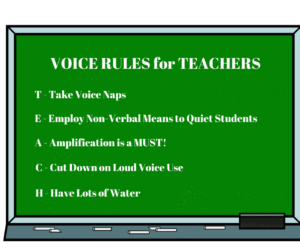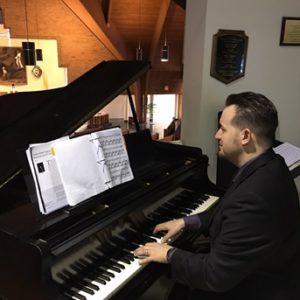
Singing Lessons in Nassau County
Is your voice letting you down? Do you think you might need Singing Lessons in Nassau County?
-
Are you losing your speaking or singing voice?
-
Have you found that your speech pattern, accent, or voice quality hinders your professional or personal success?
-
Do you (or your child) have a medical speech or voice problem?
-
Have you always wished you could improve your singing ability?
-
Do you need to increase your confidence in public speaking situations?
-
Have you contacted singing teachers, but found that they did not offer singing lessons in your own home?
Our Voice Care Center is dedicated to the total care of the professional voice. Our mission: to help people create excellent voices: those who have lost their normal voice and want to regain it, those who want to take a bland or unpleasant voice and make it pleasing and effective, or those who want to take an ordinary voice and make it extraordinary.
We do this through a customized program of voice, breathing, and relaxation techniques and exercises, based on the results of an initial voice evaluation. Our clients are treated holistically; including posture/alignment, reduction of muscle tension and vocal tension, tone placement and production, pitch control, intonation/word stress, and body language, as well as diet and anti-reflux regimens, hydration, vocal abuse reduction, vocal hygiene, and stress reduction… everything that contributes to the creation of an excellent voice. We also bring these customized components to our Total Singing Voice Program, through which we help singers achieve excellent voices through the development of a healthy dependable vocal technique. If you seek singing lessons in Nassau County, contact Professional Voice Care Center today!
In our new blog, we will present practical and informative posts on everything from how to have the voice quality you’ve always wanted, to how to break patterns of poor posture. We will talk about alignment of the head, neck, and shoulders; how to reduce voice-damaging reflux; how to create a complete hydration program and how to achieve an open relaxed throat for singing and speaking, including our “Voice Box Massage” technique that has become so popular!
We’ll interview some of our clients on their journeys through the voice therapy or voice training process, and see how they achieved their results. We’ll try to be very hands-on and present techniques that you can try TODAY! If you want to sing better in the shower, or aspire to be on the Broadway stage….give your next speech with confidence and presence….get through the work day and still have a voice….you’ll want to check back with us frequently. Use our simple but effective techniques and tips and you’ll no longer have to feel that your voice holds you back personally or professionally. If you seek singing lessons in Nassau County, contact Professional Voice Care Center today!
So stay tuned, and get ready to learn how to have a CHOICE VOICE!!
Singing Lessons in Nassau County Can Help!
The buses pull up, discharging loads of students. The bell rings. Bulletin boards are decorated, lesson plans are being created. I know, it’s too early to mention that “s ” word, school, but it’ll be here before you know it. If you’re a teacher, September brings with it all kinds of challenges. But if you’re a teacher with a voice problem, those challenges can truly be daunting. How can you protect your voice from further damage? And how can you get your voice healthy, and keep it that way throughout the school year? Here’s an idea: let’s talk about my five Voice Rules for Teachers. They’re easy to remember: they spell out “TEACH”!
” word, school, but it’ll be here before you know it. If you’re a teacher, September brings with it all kinds of challenges. But if you’re a teacher with a voice problem, those challenges can truly be daunting. How can you protect your voice from further damage? And how can you get your voice healthy, and keep it that way throughout the school year? Here’s an idea: let’s talk about my five Voice Rules for Teachers. They’re easy to remember: they spell out “TEACH”!
Rule #1: T stands for “Take Voice Naps”. A voice nap is a brief break, 5 to 15 minutes (or more if you are able) where you don’t talk or sing at all. We have found that vocal conservation is more effective than voice rest. Voice naps are one way of conserving your voice throughout the long school day. So, allow your students to work independently for a few minutes, let them take turns reading aloud, or ask your teaching assistant to run a group activity. During lunch, a voice nap would be taking a walk or eating in a quiet space, instead of eating in a noisy teacher’s lounge or diner. After work, a voice nap could be sending emails or texts instead of making lengthy phone calls.
Rule #2: E stands for “Employ Non-Verbal Means to Quiet Students. This means no shouting over the students’ loud speaking or singing. Try clapping, flicking the lights, using a bell or even a small percussion instrument. There’s even an app called Service Bell, that simulates the sound of the old-fashioned silver bell on a counter in a store. For you music teachers, play a set musical pattern on the piano that signals to the students that they need to quiet down and focus on you. You could always try the old “stand in front of the classroom, arms folded, with that ‘I’ll wait’ expression on your face”. Eventually a student will notice and one by one, the room will quiet down.
If you want to think creatively, nominate one student per day to be the Noise Monitor; you can delegate the room-quieting responsibilities to that individual. If you share with your class that you’re having a voice problem and want to engage their help to protect your voice, they’ll be more than happy to be your ally.
Rule #3: A stands for “Amplification is a MUST!” Now, I’ve heard every excuse there is from teachers who don’t want to use amplification in the classroom. But studies have shown that amplification is hugely important in protecting the teacher’s voice from vocal strain. It may even help students to hear and process verbal language more effectively. Many of the personal amplification systems we recommend are body-worn, either on a belt clip (Voice Saver: http://www.califone.com/products/pa283.php) or in a fanny pack (Chatter Vox, which is on our Amazon-affiliated website store, https://provoicecare.net/recommended-products/singer-resources/).
Rule #4: C stands for “Cut Down on Loud Voice Use”. This seems to happen so much in a school setting. Talking over students, singing over a chorus, coaching a sports or physical education activity, running an after-school club, calling someone down the hall, or being on bus duty or lunch duty. But using a forced loud voice production can really crash your vocal cords together and potentially damage them.
Remember these wise words: if you’re not getting paid to do something with your voice (in this case, being loud), DON’T DO IT! I always ask my clients who teach, “Do they increase your paycheck if you push your voice loudly at work?” But if you lose your voice, there might not BE a paycheck! So, go back to Rules #2 and #3 to help make Rule #4 a reality. Remember, if you have a microphone, there’s no point in talking loudly into it. This defeats the whole point of amplification. Speak in a more confidential tone. If you’re running outdoor activities, use a bullhorn and/or whistle.
Rule #5: H stands for “Have Lots of Water”. Wet vocal folds are happy vocal folds. You will need less force to drive the vibration of wet vocal folds vs. if they’re dry. Schools are dry to begin with, what with forced air heat, dust, poor ventilation, etc. You need to combat this with at least half your body weight in ounces of water. Fruits, herbal tea, and fruit-infused water are great too. Use a humidifier in the winter if you are able to in class, but definitely at home. Facial steaming is also helpful for keeping your cords moist. And increased hydration and steaming may help to keep all your mucous membranes healthy – and maybe ward off the dreaded school respiratory infection!
These Voice Rules for Teachers are just a starting point. There’s much more you can learn by attending voice training or voice therapy with a qualified vocologist, a speech-language pathologist with special training in the care of the voice. Some of these concepts might include learning how to warm up your voice before, during, and after school (remember, especially those of you who sing, teaching is another performance, so you need to be warmed up!), how to use good breath support, how to relax tight muscles, and how to use good seated and standing posture. If you’re already having voice problems, and the thought of teaching 6-8 hours a day scares you, schedule a voice evaluation today. Don’t wait until October 1st, when so many teachers realize they’re in vocal crisis. Take action now to prevent or hopefully reverse vocal damage. Happy teaching! If you seek singing lessons in Nassau County, contact Professional Voice Care Center today!
Meet April Lindevald
Our singing student April Lindevald, a classically-trained mezzo-soprano, has been a professional singer for 35 years, and has always had a strong healthy reliable voice with excellent vocal stamina. April has a very successful career that has included  appearances with the New York City Opera, the Gregg Smith Singers, and many other musical institutions, as well as singing regularly in a church with a large music program. She has also been a synagogue and concert soloist at countless venues.
appearances with the New York City Opera, the Gregg Smith Singers, and many other musical institutions, as well as singing regularly in a church with a large music program. She has also been a synagogue and concert soloist at countless venues.
April is a singer/songwriter and guitarist with a CD of original compositions, entitled “Fish Out of Wizard School.” She recently released her first fantasy novel, The Last Wizard of Eneri Clare, which received rave reviews on Amazon and Kirkus Reviews. (http://aprillindevald.com). This creative and talented lady is also a spiritual seeker and teacher, who uses tarot cards, crystals, and intuition to counsel clients in need of direction or encouragement. She seeks to help them deal with their challenges from a confident, empowered place.
 By now, you’ve probably noticed that all of April’s varied pursuits have a common theme: they’re all vocally demanding! Singing for hours on end in rehearsals and performances can be a strenuous workout for the voice. But make no mistake: it is quite a challenge to speak at book-signing events (and there have been many for April), often without a microphone, at large active bookstores. Not to mention the trials and tribulations of speaking at length during tarot readings, over the general hubbub of a restaurant, party venue, or street festival. Any one of these activities could present huge vocal challenges; April often did all of them in the space of one week!
By now, you’ve probably noticed that all of April’s varied pursuits have a common theme: they’re all vocally demanding! Singing for hours on end in rehearsals and performances can be a strenuous workout for the voice. But make no mistake: it is quite a challenge to speak at book-signing events (and there have been many for April), often without a microphone, at large active bookstores. Not to mention the trials and tribulations of speaking at length during tarot readings, over the general hubbub of a restaurant, party venue, or street festival. Any one of these activities could present huge vocal challenges; April often did all of them in the space of one week!
About 4-5 years ago, April found that her voice was beginning to give her some issues. She found that it didn’t last as long, she was experiencing clogging from mucus in her throat, as well as throat dryness, and her voice didn’t seem to be there when she needed it. She actually began to think that her career was coming to an end. And then she came to Professional Voice Care Center.
April found that with the use of targeted exercises that helped her to deactivate maladaptive compensatory muscular activity while readjusting her voice placement, she could put less pressure on the delicate vocal apparatus. She reports that her voice got better and better! She regained a dependable well-functioning voice that’s “there when she needs it.” She’s even gained a few more absolutely beautiful notes at the top of her range and now functions very well as a high mezzo.
As far as her speaking voice is concerned, April has now learned to use her therapeutic vocal warm-up exercises before her book-signing and tarot-reading events (let’s hear it for dashing into a restroom to warm up our voices!). She now finds that her voice gets through these events with flying colors. Everyone hears her “clear as day” and she does not experience any vocal fatigue when the events are over. In her own words, “These things work!” If you seek singing lessons in Nassau County, contact Professional Voice Care Center today!
We invite you to watch the video below to see an excellent demonstration by April Lindevald of two of our most effective vocal exercises. The exercises, the Gargle Exercise and the Humming Exercise (with a new twist), are examples of Semi-Occluded Vocal Tract Exercises, or SOVT for short. (See our previous blog entitled “Get the Buzz” for an in-depth explanation of SOVT Exercises). These vocal techniques create a relaxed vocal instrument, a rich resonant “buzzy” sound, and even help to encourage consistent breath support.
As April demonstrates, after she did the Gargle Exercise, her speaking voice was obviously clearer and more resonant. She has found this exercise helps keep her tongue forward and relaxed. The Humming Exercise helped her to place her voice forward in the mask (the area around the mouth and nose where a doctor’s mask would cover), thus amplifying her voice effortlessly. She felt this as a shift to a less stressful, more projected place, with a lot of vibration in the face, like a buzz.
In this fast-paced, I-need-it-yesterday world, we have all come to depend on certain people and things to always be there for us, to always work. Our family, friends, our computers and smart phones, the car, a good credit rating, our jobs… they’d better not vanish!
Yet there is one thing we take pretty much for granted, that we depend on for nearly all of our business and personal relationships…our voice. We expect it to be there, on the job, performing flawlessly every waking minute. Whether we are teaching, reading to our children, calling the doctor, making a sales pitch, or auditioning for a Broadway show, we count on our voice to come out just right. But what if it doesn’t???
It’s all too common that the voice can indeed let us down. From misuse or abuse of the voice,  inadequate hydration, exposure to environmental irritants, working in a noisy environment, shouting endlessly into our Bluetooth devices, and factors such as reflux, allergies, and even stress, our vocal ability can diminish very rapidly….or disappear altogether! It’s no surprise that this can happen; after all, how many of us consciously work on taking care of our voices every day, while preventing vocal injury?
inadequate hydration, exposure to environmental irritants, working in a noisy environment, shouting endlessly into our Bluetooth devices, and factors such as reflux, allergies, and even stress, our vocal ability can diminish very rapidly….or disappear altogether! It’s no surprise that this can happen; after all, how many of us consciously work on taking care of our voices every day, while preventing vocal injury?
It’s interesting that most of us practice excellent oral hygiene: we brush and floss daily, we visit our dentist regularly, and we avoid sweets that can ruin our teeth. Yet we fail to practice good vocal hygiene. It’s particularly interesting when you think about it this way: you could get false teeth if you had to, but you only get one set of vocal cords! So maybe we all should think about taking care of our voices before it’s too late. If you seek singing lessons in Nassau County, contact Professional Voice Care Center today!
In our latest video, created by our media whiz (and also a very talented singing student) Taylor Sokol, you can learn about some of the services that we offer to help people achieve excellent voices.
As a licensed and certified voice therapist and singing instructor, Karen Sussman, M.A., CCC is uniquely qualified to treat the voice problems of professional voice users, both singers and speakers. These include anyone who uses the voice to make a living and is experiencing vocal problems. Examples include teachers, executive assistants, attorneys, sales reps, and of course, singers and actors.
But you don’t have to be a professional voice user to benefit from voice therapy. Even stay-at-home parents experience almost constant vocal stress during the act of taking care of their families.
Of course, you don’t have to have a voice problem to seek the services of a qualified voice trainer. Maybe you’ve always wanted to sing but never tried to develop your hidden talent. Or, your child wants to try out for the school musical and needs skills and confidence-building. Perhaps you want your speaking voice to sound more dynamic and exciting, either for professional purposes or in your personal relationships. As some of our clients, spending time at our studio belting out pop or Broadway tunes (even recording your song to CD with professional accompaniment), or trying out your classical chops, is “therapy” of a different sort….an exciting escape from the everyday routine.
Enjoy our new video, and learn about what we can offer you, to help you achieve the “Choice Voice” you’ve always wanted!
How to Become a Better Singer Without Leaving Your Home
 If you or someone you know is interested in singing lessons from home, continue reading for more information!
If you or someone you know is interested in singing lessons from home, continue reading for more information!
Whether you’re a professional vocalist or just enjoy singing as a hobby, you may be looking to improve your skills. If you are looking to become a better singer without leaving your home, online singing lessons may be the answer. Singing lessons are a fun and rewarding way to take your singing to the next level.
If you are looking for online singing lessons within the comfort of your own home, The Professional Voice Care Center is here to help. Our owner Karen Sussman is now exclusively offering online singing lessons only via virtual platforms so that you can achieve your goals while being safe and secure in the comfort of your own home.
How Can Singing Lessons Help Me?
There are many goals you may have when taking part in singing lessons. It could be boosting confidence, improving breath control, or finding your personal style. No matter what that goal is, you want to be able to achieve it with proper technique so that your voice can stay healthy and your singing is dependable. Singing lessons can help you master the fundamentals and work to advance from there.
When you take singing lessons from home with The Professional Voice Care Center, you will see how our techniques help with total singing voice development. We offer our Singing Voice Mastery Program, where we work to avoid vocally-damaging behaviors while improving range, power, tone quality, and vocal stamina. We also specialize in audition preparation, NYSSMA preparation, and sight-singing instruction so that you can accomplish any aspirations you have.
Is It Easy to Take Singing Lessons from Home?
The answer is yes! Singing lessons from home are convenient and effective. By taking online lessons, you are not compromising the quality of learning. You will still be taking part in a successful and constructive lesson! By utilizing video conferencing services that are free and easy to download, you can schedule a time for singing lessons that work around your schedule.
Contact Us Today!
If you are looking to take online singing lessons look no further than The Professional Voice Care Center. Our team of highly-trained voice instructors will help develop a personalized program so that you can reach your highest musical potential. Visit our website for more information about how you can get started!
How Do I Prepare My Voice for A Presentation?
 Public speaking, whether you are speaking to a class, or a video conference for your business, can be intimidating and can cause many professionals to have complications. Being a good speaker won’t just help you in presentations, but in every situation where you need to communicate in a professional manner. Knowing how to speak well professionally and preserve our voice will help you exceed in your career, no matter what that is. If you are in need of Singing Lessons In Nassau County to help you prepare for a presentation or video conference, reach out to us at the Professional Voice Care Center and see how we can help you.
Public speaking, whether you are speaking to a class, or a video conference for your business, can be intimidating and can cause many professionals to have complications. Being a good speaker won’t just help you in presentations, but in every situation where you need to communicate in a professional manner. Knowing how to speak well professionally and preserve our voice will help you exceed in your career, no matter what that is. If you are in need of Singing Lessons In Nassau County to help you prepare for a presentation or video conference, reach out to us at the Professional Voice Care Center and see how we can help you.
Preparing Your Voice for the Big Day
While confidence can be built up with practice and preparation, there are a few things you can do before your presentation to help you be successful. Here are a few tips that can help you prepare:
- Proper Breathing: breathing properly can help you manage your voice and keep your speaking clean and consistent. To breathe properly you need to use all of your chest, not just the upper part like you may be used to.
- Stay Hydrated: drinking water can lubricate your vocal cords, and without the proper lubrication your vocals can become irritated and cause you problems while speaking. You should stay properly hydrated throughout your day, and keep a bottle of water with you when speaking to prevent dry mouth as well.
- Keep a Calm Mind: we all can get nervous from time to time, but being nervous can tighten you up and make speaking difficult. To prevent you from tightening up and having trouble speaking, you should try to relax. Try to stretch your upper body, massage your neck, and try to keep your face and jaw relaxed. For more tips and exercises, learn how our Singing Lessons In Nassau County at the Professional Voice Care Center can help and see what we have to offer.
- Avoid Damaging your Vocal Cords: smoking and drinking alcohol can hurt your vocal cords. Even eating or drinking late can cause your stomach acid to build up and hurt your vocal cords. Avoiding behaviors such as these can help you improve your speaking.
Singing Lessons In Nassau County
These are just a few of the tips you can use to improve your speaking capabilities. Along with these few tips to do before your presentation, there are a lot of areas you can improve with practice and time. To get Singing Lessons In Nassau County and improve your speaking skills further, contact us today at the Professional Voice Care Center and see how we can help!
Summary
Service Type
Singing lessons
Provider Name
Professional Voice Care,
184 West Nicholai Street,Hicksville,NY- 11801,
Telephone No.5164331822
Area
Nassau County
Description
Is your voice letting you down? Do you think you need vocal training? If you seek singing lessons in Nassau County, contact Professional Voice Care Center!
 inadequate hydration, exposure to environmental irritants, working in a noisy environment, shouting endlessly into our Bluetooth devices, and factors such as reflux, allergies, and even stress, our vocal ability can diminish very rapidly….or disappear altogether! It’s no surprise that this can happen; after all, how many of us consciously work on taking care of our voices every day, while preventing vocal injury?
inadequate hydration, exposure to environmental irritants, working in a noisy environment, shouting endlessly into our Bluetooth devices, and factors such as reflux, allergies, and even stress, our vocal ability can diminish very rapidly….or disappear altogether! It’s no surprise that this can happen; after all, how many of us consciously work on taking care of our voices every day, while preventing vocal injury? If you or someone you know is interested in singing lessons from home, continue reading for more information!
If you or someone you know is interested in singing lessons from home, continue reading for more information! Public speaking, whether you are speaking to a class, or a video conference for your business, can be intimidating and can cause many professionals to have complications. Being a good speaker won’t just help you in presentations, but in every situation where you need to communicate in a professional manner. Knowing how to speak well professionally and preserve our voice will help you exceed in your career, no matter what that is. If you are in need of Singing Lessons In Nassau County to help you prepare for a presentation or video conference, reach out to us at the Professional Voice Care Center and see how we can help you.
Public speaking, whether you are speaking to a class, or a video conference for your business, can be intimidating and can cause many professionals to have complications. Being a good speaker won’t just help you in presentations, but in every situation where you need to communicate in a professional manner. Knowing how to speak well professionally and preserve our voice will help you exceed in your career, no matter what that is. If you are in need of Singing Lessons In Nassau County to help you prepare for a presentation or video conference, reach out to us at the Professional Voice Care Center and see how we can help you.




 appearances with the New York City Opera, the Gregg Smith Singers, and many other musical institutions, as well as singing regularly in a church with a large music program. She has also been a synagogue and concert soloist at countless venues.
appearances with the New York City Opera, the Gregg Smith Singers, and many other musical institutions, as well as singing regularly in a church with a large music program. She has also been a synagogue and concert soloist at countless venues.
